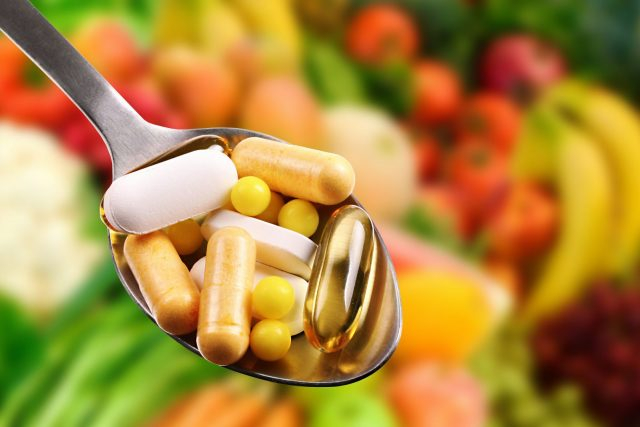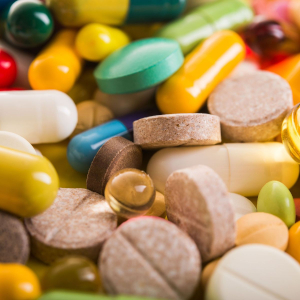It was unfortunate, to say the least, that doping became the biggest story of the 2022 Winter Olympics. But in an era where the difference between winning and losing is often measured in hundredths of a second, it seems performance enhancement was destined to be front and centre…
 A whole ‘cocktail’ of ‘natural’ dietary supplements that may
A whole ‘cocktail’ of ‘natural’ dietary supplements that may
not be so safe, especially in combination with each other.
Doctors and nutritionists have been warning us for years that high performance athletes are nearing the limits of human physical accomplishment. No wonder trainers and coaches rely more and more on scientific conditioning methods and seek new, legal dietary supplements that can give their kids the edge.
Some cultures – notably Russia, as the evidence shows – still rely on banned substances to build the strength and endurance of their competitors. And when they get caught,the International Olympic Committee agonizes over giving them even a soft slap on the wrist. That’s tantamount to condoning doping and, in the broader sense, cheating. As a result, the accomplishment represented by an Olympic medal becomes meaningless. But that’s another topic, for another day, probably on a different blog altogether.
A rise in popularity of ‘natural’ supplements
With all the controversy over doping and the diminishing returns being produced by high-tech conditioning techniques, athletes, their handlers and advisors are turning more and more to so-called natural supplements. The most common of these are caffeine, creatine, energy drinks and bars, beetroot juice, and various protein concentrates.
The final report of a new study observes, “Nutritional supplements are commonly viewed as risk-free substances that may improve performance,” But, “some nutritional supplements, including various plant and ‘natural’ extracts, may pose a serious health risk and athletes may even risk contravening anti-doping rules.”
Furthermore, and perhaps more importantly, “Athletes who use supplements often have no knowledge regarding their effects on sports performance and overall health,” continues the document. “It is reported that most athletes get nutritional advice from coaches, fellow athletes, family members and friends.” Everyone but doctors, apparently.
Caffeine as a case in point
“Caffeine is a prime example of a natural substance that is considered safe,” says first author Dr. Paolo Emilio Adami of World Athletics, the global governing body for track and field. “While caffeine improves performance, particularly aerobic capacity in endurance athletes, its abuse may lead to fast heart rate (tachycardia), heart rhythm disorders (arrhythmias), high blood pressure, and in some cases, sudden cardiac death.”
There also seems to be a ‘more is better’ attitude toward ‘natural’ supplements, which researchers warn may result in side effects that outweigh the performance benefits.
Adami also points out, “In many cases, sportspeople use a mix or cocktail of substances to improve their performance, and the interactions between them can also be extremely dangerous. […] “Athletes should be aware that natural supplements and substances are not necessarily safe and should only be used if recommended by professional nutritionists.”
Little regulation
The World Anti-Doping Agency (WADA) publishes a list of prohibited substances, but nutritional supplements are not included since many are unregulated and unlicensed. The use of legal supplements by athletes varies between 40 percent and 100 percent of participants depending on the sport and level of competition.
Main findings may seem obvious, but…
- A natural supplement is not necessarily a safe supplement.
- Use products by established manufacturers with known good quality standards.
- Athletes are personally responsible for any substances they consume.
- Ignorance is not accepted as an excuse in relation to a positive doping test.
Ordinary folks who seek top enhance their performance in certain sports should take note. Body builders and marathoners, for example, may be especially susceptible to the lure of ‘magic bullet’ supplements which may seem perfectly harmless.
The takeaway
Use ‘natural supplements’ if you must, but be aware of the dangers, and use only under proper professional advice.
And watch carefully what’s in your supplements.
I clearly recall multiple almost disastrous incidents in which new mothers had their babies taken away during those important early bonding hours because they tested positive for opiates in routine blood tests. The cause turned out to be poppy seed bagels and pastries the mom’s had eaten within a day of delivering.
More germane to our topic today, champion 1,500 and 5,000 metre runner Shelby Houlihan tested positive for the banned anabolic steroid nandrolone, and was herself banned from the coming summer olympics where she was favoured to win her events. Turned out she had consumed a burrito from an ‘authentic’ Tex-Mex food truck which served pig organ meats. And pig organ meats are naturally high in nandrolone. Who knew?
We all need to know.
Another study, back in 2015, revealed that misuse or abuse of ‘safe’, ‘natural’ supplements led to thousands of avoidable, unnecessary hospitalizations every year.
~ Maggie J.

